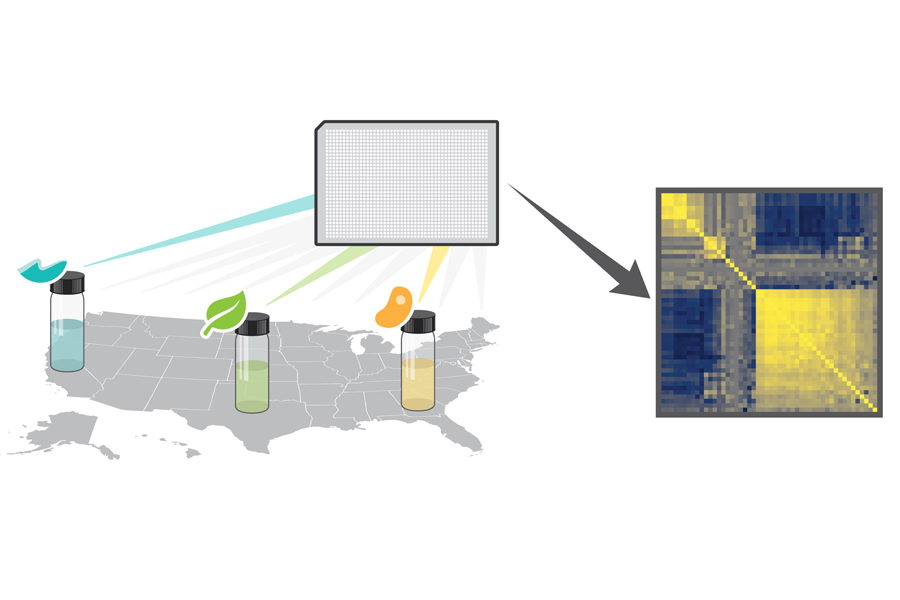NCATS Spearheads a New Resource for Natural Products

The illustration depicts the wide geographic distribution of contributions from scientists to the Canvass library of natural products. The box at the top represents a plate with wells in which many individual experiments are conducted.
March 23, 2019
Natural products have long been used as therapies for cancer and infectious diseases, in addition to being treatments for cardiovascular disease, pain and inflammation. Academic laboratories and companies, however, often lack the resources or assays (tests) to evaluate the potential utility of natural products, and many important chemicals produced or isolated by researchers remain untested for biological activity.
To better realize these chemicals’ potential medical use, NCATS researchers invited academic and industry scientists around the world to submit natural products for evaluation. NCATS scientists subsequently examined the biological activity of 346 such compounds through 50 assays to evaluate the compounds’ possible uses in treating a variety of diseases; the findings now make up the Canvass library of natural products. The researchers, led by Matt Hall, Ph.D., and Jason Rohde, Ph.D. (now with the Walter Reed Army Institute of Research), described this pilot effort in the American Chemical Society’s ACS Central Science.
“Many drug companies today are moving away from using natural products as starting points in developing new medicines,” said Kanny Wan, Ph.D., a research scientist at NCATS who was also involved in the project. “We want to provide a publicly available platform to help fully characterize the biological activities of known natural products, a tool that doesn’t quite exist today. We’re hoping that the use of Canvass will lead to new therapies for diseases.”
The researchers found some compounds with unexpected biological activities. For example, 2-cathafoline, a plant product, was discovered to have calcium-stabilizing effects, which could have potential use in treating cardiovascular diseases and diabetes. Piperine, a compound in pepper, could affect enzymes involved in metabolizing drugs.
Version 2.0 of Canvass is planned, though the questions it will address and the data it will house remain to be determined. For more information, see https://tripod.nih.gov/canvass/.


